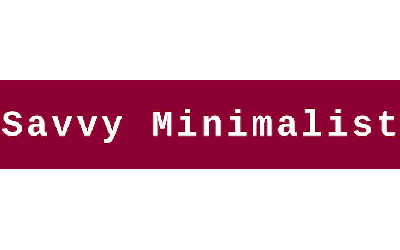Budgeting is a fundamental aspect of personal finance because it provides a structured approach to managing income and maximize finances. However, for minimalists, budgeting takes on a deeper significance as it aligns with their core values of simplicity and intentionality. By embracing a minimalist lifestyle, individuals not only focus on mindful spending but also prioritize experiences over material possessions. In this blog post, I aim to go into various strategies that integrate minimalist principles into budgeting practices, enabling you to create a financial plan that resonates with your values. My goal is to help you create a simple and effective best budget strategies that not only supports your financial goals but also contributes to a life filled with purpose, fulfillment, and meaningful experiences.
Define Your Values and Priorities

Before you get into the detailed aspects of budgeting, it’s crucial to define your values and priorities. Reflect on what truly matters to you and what your long-term goals and aspirations are. Identify what holds the most significance in your life, be it financial security, exploring the world through travel, seeking enriching experiences, or contributing to philanthropic causes. By taking the time to clearly articulate your values, you not only pave the way for the best budget strategies that aligns with what is important to you but also establish a solid foundation for making financial decisions that resonate with your core beliefs and objectives.
Embrace Minimalist Principles

Minimalism transcends mere physical decluttering; rather, it encompasses a holistic approach to simplifying life in its entirety, encompassing not only the tangible but also the intangible, such as one’s financial realm. To truly embrace minimalist principles within your budget, it is essential to concentrate on the fundamental necessities while ruthlessly eliminating superfluous expenses that fail to contribute meaningfully to your life. Opting for experiences over material possessions can further enhance this minimalist lifestyle, as it encourages focusing on what truly matters and excites you, fostering a sense of alignment with your core values and deep-rooted joys.
Track Your Spending

To develop the best budget strategies that efficiently helps you to maximize finances more prudently, it’s crucial to have a comprehensive understanding of your expenditure patterns. Take the time to meticulously monitor your spending over a period of one to two months so that you can gain a detailed insight into how you utilize your funds. Leveraging various resources such as specialized budgeting applications or well-structured spreadsheets will enable you to categorize your expenses meticulously and pinpoint specific areas where you have the opportunity to reduce costs or redirect monetary resources towards more meaningful goals. By undertaking this thorough analysis, you’ll be equipped with the knowledge and insight needed to take meaningful steps towards enhancing your financial well-being and achieving your desired financial objectives effectively.
Establish Clear Categories

Once you have gained a more thorough insight into the way you tend to spend your money on a regular basis, it becomes important to set up distinct and well-defined categories within your budget structure. To make this process effortless, consider simplifying it by concentrating on overarching groupings that encompass fundamental aspects like housing, transportation, food expenses, utilities, managing debts, saving for the future, and discretionary spending that allows for flexibility and enjoyment. Assign specific financial allocations to each of these categories according to your overall income level and personal priorities, ensuring a systematic approach to maximize finances successfully.
Practice Conscious Spending

Minimalists are intentional about how they spend their money, choosing quality over quantity and prioritizing experiences over material possessions. They focus on deriving lasting satisfaction from meaningful experiences rather than accumulating physical items. It is crucial for them to evaluate purchases based on their alignment with personal values and the potential joy they can bring. One effective strategy they adopt is implementing a designated “wait-and-see” period before making non-essential purchases. This practice aids in preventing impulsive buying decisions and encourages thoughtful consideration of the necessity and impact of each purchase on their lives.
Automate Your Savings

Making saving a priority is essential for financial stability and long-term wealth growth. One effective way to prioritize saving is by automating your contributions to savings and investment accounts. By setting up automatic transfers from your checking account to your savings or investment accounts each month, you can effortlessly grow your funds over time. Treat your savings as a fixed expense, akin to your rent or utilities, to ensure a consistent and reliable approach to building wealth. This disciplined approach to saving will lead to financial security and help you achieve your long-term financial goals.
Review and Adjust Regularly

Budgeting is a dynamic task that requires continuous attention and care. It’s not just about creating a budget and leaving it be. To effectively maximize finances, it’s crucial to regularly revisit your budget, analyzing your financial habits, progress, and goals. This periodic review allows you to pinpoint areas that may need enhancement, making necessary tweaks to align your budget with your evolving life circumstances and aspirations. Stay open-minded and prepared to adapt the best budget strategies whenever necessary to ensure it remains relevant and beneficial to your financial well-being.
Conclusion
For minimalists, budgeting is about more than just creating numbers—it’s about putting your spending decisions in line with your values and priorities. By adopting a minimum principle, you can create the best budget strategies that aid you to live a simple life. Remember that the goal of a budget is not to restrict your freedom, but to provide a framework for making deliberate choices that will benefit your long-term financial well-being

